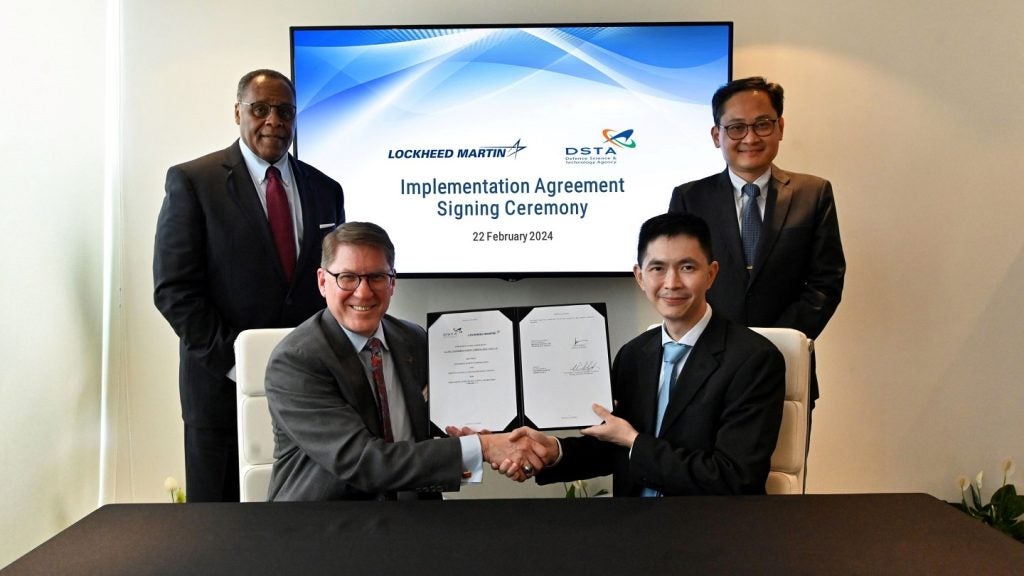Singapore’s Defence Science and Technology Agency (DSTA) and Lockheed Martin have entered into an agreement to implement a new data pipeline infrastructure to facilitate the exchange of digitalised fleet and supply chain datasets.
The agreement, signed on 22 February, allows for improved data analytics insights for the optimisation of aircraft maintenance support, leading to reduction in sustainment cost, improvement in overall fleet availability, and enhanced operational readiness for the Republic of Singapore Air Force.
Established on the sidelines of the Singapore Airshow, this announcement follows the collaboration agreement signed between both organisations in March 2023, according to a 27 February release from Lockheed Martin.
“We are glad to further strengthen our collaboration with Lockheed Martin, and establishing a new data pipeline reflects a shared commitment to leverage digital technologies to enable smarter maintenance support for our aircraft,” said DSTA’s director Air Systems, Ang Jer Meng.
Steve Sheehy, vice president for Sustainment Campaigns at Lockheed Martin, stated that the agreement would provide improved maintenance solutions for Singapore’s F-16 multirole fighter fleet.
Singapore’s DSTA serves to leverage technological advancements to provide efficiencies and improvements in Singapore’s military, with expertise in areas such as systems engineering, digitalised platforms, cyber operations, and software development.
According to GlobalData, Singapore has spent a significant amount on defence due to internal and external threats, such as the Al-Qaeda-linked Jemaah Islamiyah and other regional terrorist groups.
The Southeast Asian country allocated a budget of $13.1bn in 2023 and registered a compound annual growth rate (CAGR) of 5.9% during the historic period of 2019–23. Singapore plans to spend significantly on its defence over the forecast period, with its defence budget is expected to increase from $13.5bn in 2024 to $16.3bn in 2028, growing at a CAGR of 4.7%.









